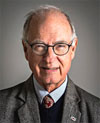Special to WorldTribune.com
 By Donald Kirk
By Donald Kirk
SEOUL — From Africa, through the Middle East, and on to Asia, the masses of much of the world have got to be amazed by the “sexual revolution” in the United States and where it’s leading American society.
Homosexuality exists everywhere, in any culture or country, but the initials that have now come into common usage in the U.S. are simply beyond comprehension to ordinary people elsewhere. How many non-Americans would know the meaning of LGBTQ?

This alphabet soup of weird letters, all consonants, no vowels, stands for Lesbian, Gay, Bisexual, Transgender and Queer. That’s just about everyone not involved in a relationship with the opposite sex — except, by definition, bisexuals.
LGBTQ is in such common usage in the U.S. as to mean that those who identify in all those categories fit totally into the mainstream of society. Nobody questions their right to do whatever they wish between themselves as consenting adults. They may choose whatever behavior they like and, in many American states, can legally marry one another. The exercise of their freedom goes unquestioned even if many others, who do not fit into any of these categories, do not approve of what they are doing [and oppose laws and court rulings seen as enabling and promoting perverse behavior].
Those initials, LGBTQ, stand for a wide range of relationships and activities. “L” is for lesbians, women interacting, socially and physically, with one another. The initial G is for “gay,” an adjective that once simply meant fun-loving, happy and exuberant but now means homosexual. A gay couple is not a smiling, socially outgoing husband and wife. Rather, it’s two people of the same sex who live with one another, may even be legally married. “B” means “bisexual,” one who enjoys physical relations with both men and women, has sex indiscriminately with anyone, male or female.
“T” for transgender is one who has changed sex, maybe surgically, medically, but not necessarily. “T” can simply mean one who identifies with the opposite sex, behaves as a member of the opposite sex. A man or woman who dresses and acts with the mannerisms of a woman or man and wishes to be legally recognized as such is free to do so. Controversy, however, surrounds whether a man in woman’s attire, who looks and acts like a woman but physically is a man, should use the women’s or men’s toilet.
Probably the oddest of these initials is “Q” for “queer.” Years ago, the term “queer” as applied to a man or woman was denigrating. “Queer” meant not merely odd or different but homosexual in a time in which homosexual activity was often illegal. The usage of the initial “Q” after LGBT has come into vogue to make clear that it’s Ok to be “queer,” the “queer” label does not have to be demeaning or negative. The term is quite different from the word “faggot” or “fag,” which remains a most insulting way to refer to someone, generally a man, who’s homosexual or “gay.” Within the current mainstream of American society, no one is going to say someone is a “faggot.” The word is so offensive as to have almost fallen into disuse, at least as applied to homosexuals. (Its original meaning refers to wooden sticks used for building up fires in fireplaces or bonfires.)
What is one to make of the acceptance of the LGBTQ phenomenon in American life? Certainly, homosexual activity is no longer against the law anywhere. Or, if laws against such activity remain on the books in some places, they are never enforced and would not stand up in a court of law. In many American states, it is specifically illegal to discriminate against anyone on these grounds. Companies and institutions cannot fire anyone, or refuse to hire someone, simply because he or she fits into one of these categories. Stores and restaurants are legally required to serve them without question. The mass media avoids references that might appear prejudicial or demeaning to LGBTQ people.
The rise of the LGBTQ movement, however, is also capable of having a divisive effect. American churches are split between those in favor and against such activities. Certain congregations are made up largely of “gay people” while others specifically frown upon them, call them sinners against the bible. Fundamentalist Christians and evangelicals, along with Baptists, are in the vanguard of foes of acceptance of LGBTQ activities in the U.S.
The question arises of whether to respect LGBTQ people for exercising their democratic freedom or to criticize them for undermining the institution of marriage between man and woman.
Nothing can change the physical fact that relations between men and women are needed for procreation of the human race from generation to generation.
Husbands and wives, male and female, regardless of whether they are bound in holy matrimony, together form family units. Toleration of those with different views and lifestyles is essential in a democracy, but certain realities remain eternal for the survival of mankind.
